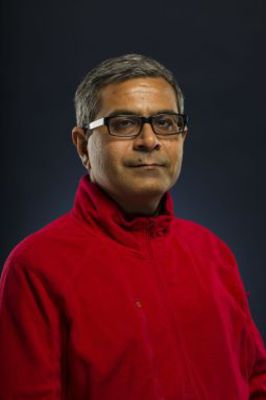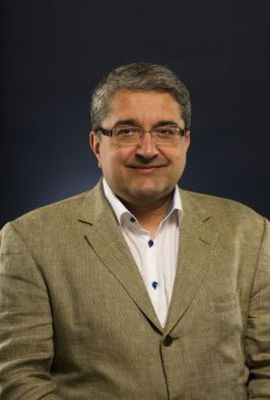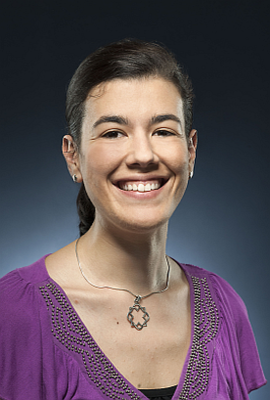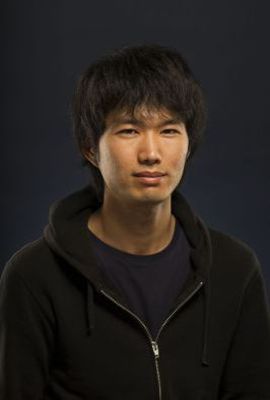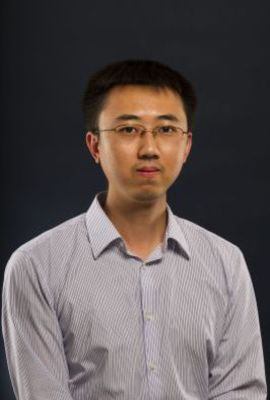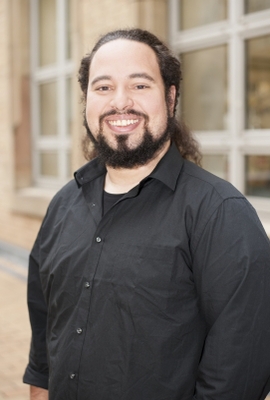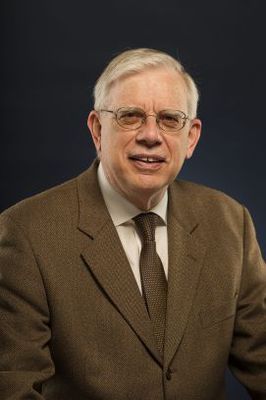 |
Research field: Computational Mechanics applied to structural and geotechnical earthquake engineering problems (Seismic analysis and design of steel structures, tunnels and retaining walls) -> More |
Research Alumni Gallery
Professor Dr. Dimitrios E. Beskos
Area of research: Computational Mechanics with Applications in Civil Engineering
Name of home university / research institute: Department of Civil Engineering, University of Patras, Patras, Greece
Research period at KIT: 4/9/2013-4/9/2014 at the Institute of Soil Mechanics and Rock Mechanics
My research field: Computational Mechanics applied to structural and geotechnical earthquake engineering problems (Seismic analysis and design of steel structures, tunnels and retaining walls)
How my research field is going to affect the world of science: Provide more rational and efficient seismic design methods for safer and more economic structures.
My biggest success in research today is: Development of new more rational and efficient computational methods for analysis and design of structures.
I have chosen the Karlsruhe Institute of Technology because of its high worldwide reputation in civil engineering and especially in geotechnical engineering.
I like about the technology region Karlsruhe the high concentration of technological research units conducting high quality research at its forefront.
With the help of my host at the KIT I would like to do develop new more rational and efficient seismic design methods for retaining walls.
Guest of: Professor Theodoros Triantafyllidis
Department: Institute of Soil Mechanics and Rock Mechanics in Civil Engineering
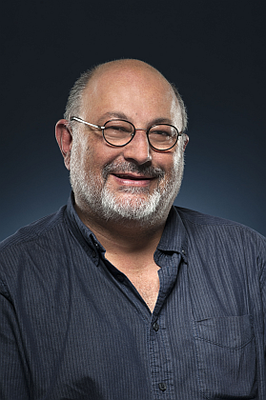
Professor Dr. Mir Wais Hosseini
Homepage at L'Université de Strasbourg - Laboratoire de Tectonique Moléculaire
Area of research: Molecular, supramolecular and solid state chemistry. Development of molecular tectonics
My research field: Chemistry and molecular programming and organization.
How my research field is going to affect the world of science: Understanding and controlling the passage between the microscopic and macroscopic worlds is a key issue for the development of tomorrow’s new and smart materials. Programming materials function at the level of their molecular components is the ultimate challenge in functional molecular materials and will open a variety of possibilities in sensing, imaging, separation, catalysis as well in optical and magnetic devices.
My biggest success in research today is: the development of molecular tectonics, in particular the design and generation of crystals of crystals by 3D epitaxial growth.
I have chosen the Karlsruhe Institute of Technology because... KIT is a well known institution offering research diversity and quality. In particular, the presence of several highly recognized researchers at the main south and the north campuses opens the way to high quality collaborative research. Although, I do have a long standing collaboration with the group of Professor S. Bräse (department of Organic Chemistry), I am currently discussing with Professors M. Kappes and M. Rubin at the INT, Professor C. Wöll at the IFG and Professor A. Powell to set up collaborations and further develop the interactions between KIT and the University of Strasbourg.
Professor Dr. Manish Mamtani
Homepage at Indian Institute of Technology Kharagpur
Area of research: Geology
Name of home university / research institute: Indian Institute of Technology (IIT) Kharagpur, India
Research period at KIT: 1-May-2014 to 31-July-2014
My research field: Structural Geology
How my research field is going to affect the world of science:
I am working on “Evaluating strain in monomineralic quartz rocks using magnetic fabric – integrating AMS, fractal and textural data”. This research deals with fabric analysis in rocks that do not have visible anisotropic structures. In terms of societal importance, it is to be noted that mineralization in rocks is controlled by anisotropy in them. Therefore, the proposed study of strain and fabric analysis in monomineralic rocks has implications to evaluate mineralized zones and thus influence economic growth of society.
My biggest success in research today is:
To have been able to establish my own AMS laboratory and research group in IIT Kharagpur (India). This laboratory functions as a NATIONAL FACILITY, where researchers from different parts of India come to analyze magnetic fabric in their rock samples. This facility has been instrumental in promoting AMS applications in Structural Geology & Tectonics in India in a big way.
I have chosen the Karlsruhe Institute of Technology because:
my host Prof. Reinhard O. Greiling (Lehrstuhl für Strukturgeologie und Tektonophysik, Institut für Angewandte Geowissenschaften) is one of the pioneers in integrating field, microstructural and magnetic fabric studies. We have been associated for more than 15 years and the collaboration has been academically very rewarding in terms of scientific development.
I like about the technology region Karlsruhe:
KIT is a great academic institution. The facilities are excellent, and all parts of the region (and the institute) are well-connected.
With the help of my host at the KIT I would like to:
continue my long standing cooperation and broaden the applications of AMS in Structural Geology, particularly in rocks that lack visible anisotropic structures.
Guest of: Prof. Dr. Reinhard O. Greiling
Department: Institut für Angewandte Geowissenschaften
You appreciate in your guest / your guest favorably impresses you by…
his scientific originality and his successes in the study of microstructures, fabrics, and their evolution; his ability to apply scientific results to problems of society, in particular Structural Geology applied to mineral exploration and rock mechanics/engineering geology problems.
You, your team and the KIT benefit from your guest’s…
scientific input, in particular his new and stimulating ideas and his lively discussions, and his cooperation in a number of geological topics.
Dr. Alik T. Ismail-Zadeh
Area of research: Earth Sciences, Applied Mathematics
My research field: My research field is Computational Geodynamics. Scientific interests of mine cover the physics and dynamics of the Earth’s crust and mantle and their surface manifestations, including sedimentary basics, mountains, seismicity, and seismic hazard. As a geophysicist, I interest it to understand a complex behavior of the lithosphere. As an applied mathematician, I interest it to bring formalism to Earth sciences. As a habitant of our planet, I interest it to know how to cope with disasters.
How my research field is going to affect the world of science: When nature unleashes itself (resulting in earthquakes, volcanic eruptions or tsunami), it strikes where and when it decides. Disasters associated with extreme events cause loss of human life and environmental damage. There is no doubt that man will never be able to prevent these occurrences entirely. However, scientists working in the field of computational geodynamics are able to gain better understanding of the complex mechanisms behind natural hazards using modern mathematical tools and powerful computers.
My biggest success in research today is in developing the computational methodology to model dynamics of the Earth in the past and linking this dynamics to the present. This allowed to explain the interplay of mantle dynamics, descending lithosphere, sedimentary basics, and hydrocarbon fields. This also helped to identify the sites of potential large earthquakes (e.g., in Tibet-Himalayan, Sunda Arc, Carpathians, Caucasus).
I have chosen the Karlsruhe Institute of Technology because of excellent opportunities to work on multi-disciplinary research topics in geodynamics with outstanding German experts in tectonic stress analysis, seismology, and petrophysics.
Dr. Eva Blasco
Area of research: Macromolecular Chemistry
Name of home university / research institute: KIT (Institut für Technische Chemie und Polymerchemie and Institut für Angewandte Physik)
Research period at KIT: 04.2014-04.2016
My research field: Conductive polymers
How my research field is going to affect the world of science: nowadays, the development of conductive materials is very important in the field of electronics.
My biggest success in research today is: the preparation of photoresponsive materials with potential applications in controlled delivery systems and smart surfaces.
I have chosen the Karlsruhe Institute of Technology because it is one of the largest and most prestigious research and education institutions in Germany.
I like about the technology region Karlsruhe the facilities to perform high quality research and development activities.
With the help of my host at the KIT I would like to... Due to the great experience of both hosts, the stay in the KIT will provide me unique learning opportunities. This research stay in Germany would also give me the opportunity to broaden my experience and knowledge in the area of macromolecular chemistry. As I am planning on pursuing a career within the academic field, this stay will put me in an excellent stance for my future career.
Guest of: Prof. Dr. Christopher Barner-Kowollik
Department: Institut für Technische Chemie und Polymerchemie and Institut für Angewandte Physik
You appreciate in your guest / your guest favorably impresses you by her impressive chemistry knowledge and dedication to her projects.
You, your team and the KIT benefit from your guest’s... great scientific interactions, knowledge in macromolecular design and excellent colleague with drive and self-motivation.
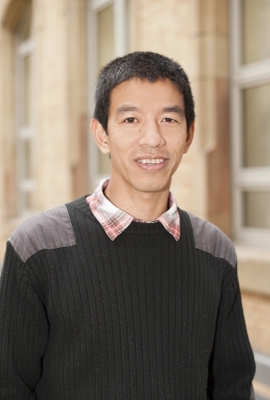 Tien Chung Ho
Tien Chung Ho
Area of research: Karst hydrology, Engineering Geology
Name of home university / Research Institute: Vietnam Institute of Geosciences and Mineral Resources (VIGMR), Hanoi, Vietnam
Research period at KIT: From 1.2014 – 6.2017 at Institute of Applied Geosciences (AWG/KIT)
My research field: Karst geology, hydrogeology and vulnerability mapping.
How my research field is going to affect the world of science: Karst area is one of the world most diverse, fascinating and problematic terrains. They cover 12% of the planet´s land surface and supply water for 25% of the global population. But they are also the landscape of most vulnerable to environmental impacts. Understanding the complex hydrogeology of karst acquirers still requires for accurate assessments. My study will based on structural geological mapping and cave exploration to structural-compositional characteristics substantially control the where-about and behaviour of the groundwater in karst area.
My biggest success in research today: Still working on it!
I have chosen the Karlsruhe Institute of Technology because I know the professionalism and creativity of professors and colleagues from KIT during we collaborate on a project in Vietnam.
I like about the technology region Karlsruhe: Many facilities for research and green.
With the help of my host at the KIT I would like to… I would like improve scientific work.
Dr. Hironari Isshiki
Area of research: Physics
Name of home university / research institute: Karlsruhe Institute of Technology / Institute of Physics
Research period at KIT: 14 months
My research field: Surface Magnetism
How my research field is going to affect the world of science: We are studying the smallest magnet in the world which must be one magnetic molecule or one magnetic atom on the surface. We believe this smallest magnet can be used as a quantum bit (q-bit) and it would contribute to the development of physics.
My biggest success in research today is: We recently found the molecule which can work for our purpose.
I have chosen the Karlsruhe Institute of Technology because of… the previous works of Prof. Wulfhekel’s group. Their home-build scanning tunneling microscope (STM) works stably at ultra-low temperature (below 1 K), which is capable enough to investigate the magnetic properties of individual magnetic molecules and atoms.
I like about the technology region Karlsruhe… I am impressed by students in our group and our institute. Almost all of them are well educated, talented and motivated to do physics.
With the help of my host at the KIT I would like to do… I would like to learn the measurement technique required to do above experiment and STM building techniques for my future.
Guest of: Prof. Dr. Wulf Wulfhekel
Department: Institute of Physics
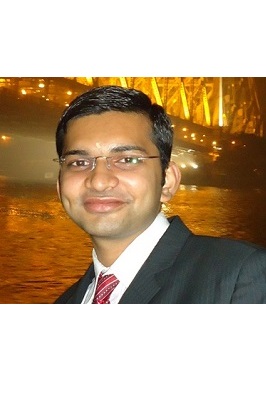 Parth Chandulal Kalaria
Parth Chandulal Kalaria
Area of research: Nuclear fusion technology, Radio frequency plasma heating system design for nuclear reactors
Name of home university / Research Institute: Ph.D. : Institute of Pulsed-power and Microwave Technology (IHM), Karlsruhe Institute of Technology. Master Degree (M.Tech. : Master of Technology): Indian Institute of Technology, Roorkee (IIT-Roorkee), India Bachelors Degree: Nirma Institute of Technology, Ahmedabad, India
Research period at KIT: Oct. 2013 to Oct. 2016
My research field: In my Ph.D. work, I am designing high frequency, high power radio frequency tube called Gyrotron. The gyrotron is an electron tube which is used as an electron cyclotron resonance heating in the fusion nuclear reactor.
How my research field is going to affect the world of science: The fusion nuclear energy is considered to be a prominent source of the energy for the next century and researchers of the entire world are trying to build highly efficient fusion reactors. My research work will help them to get sufficiently high temperature for fusion reactors.
My biggest success in research today is: Designed very high frequency gyrotron (170 GHz) with higher order mode TE36,10 (First time in the world).
I have chosen the Karlsruhe Institute of Technology because… It is one of the few well renowned institute with experienced professors, good resources and friendly working environment.
I like about the technology region Karlsruhe… It is very safe and has good weather.
With the help of my host at the KIT I would like to do… Long term research collaboration, joint publications and regular visit to KIT.
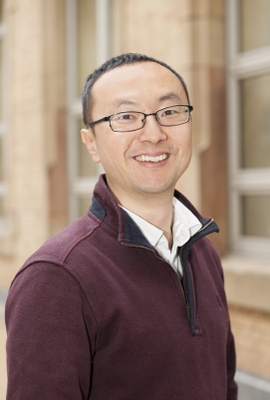 Dr. Sunhyung Kim
Dr. Sunhyung Kim
Area of research: Chemical engineering, Rheology (fluid mechanics of polymer solution and colloidal dispersions)
Name of home university / Research Institute: Seoul National University, School of Chemical and Biological Engineering, Lab for rheology and processing of complex fluids
Research period at KIT: Since 02/17/2014
My research field: Coating and Drying of colloidal dispersion / Cracking / Capillary suspension
How my research field is going to affect the world of science: Improve performance of printing electronics, energy device etc. by overcome coating defects(such as crack)
My biggest success in research today is: Establish methodology to analyze drying behavior of colloidal dispersion
I have chosen the Karlsruhe Institute of Technology because of…I met one nice idea to apply my research experience.
I like about the technology region Karlsruhe…There are many interesting ideas. Research facilities are well equipped.
With the help of my host at the KIT I would like to do…I would like to continue my research in a cooperation with KIT when I go back to Korea
Tell us after your departure from KIT at which Institute / University you continued your research career:
LG chemical, Research and Development Center, Drying project
Dr. Suzhi Li
Area of research: Material Science and Engineering
Name of home university / research institute:
Karlsruhe Institute of Technology (KIT) / Institute of Applied Materials - Reliability of Components and Systems (IAM-ZBS)
Research period at KIT: 01/01/2014 – 31/12/2015
My research field: Hydrogen embrittlement, the degradation of mechanical behaviors caused by hydrogen, is a fundamental problem that has been studied in the past several decades. Its implications ranges from operations of off-shore wind turbines to oil and gas extraction to hydrogen economy. Although several mechanisms have been proposed, such as formation of hydride, hydrogen enhanced local plasticity (HELP), grain boundary decohesion, etc., the fundamental mechanism(s) of embrittlement are still controversial, and the molecular-level damage events shrouded in mystery.
Computational materials science at atom-scale is now a robust and promising area that merged in the past thirty years. In addition to experimental and theoretical work, it provides new insights into researches on material structures, properties and various relationships. Recent development in high-performance computer makes it possible to perform large-scale simulation with millions of atoms, which is known as molecular dynamics (MD) technique. My research field here is primarily focused on the investigation of possible mechanism of hydrogen embrittlement by performing atomistic simulations.
How my research field is going to affect the world of science:
This work should be of general interest to the broad materials research community, as it is one of the best-known mysteries in materials science and one of the grand-challenge problems in engineering.
My biggest success in research today is: We demonstrate the hydrogen-vacancy complex as the molecular-level agents of damage in hydrogen embrittlement. Our atomistic simulations show that the concentration of hydrogen-vacancy complex can reach extremely high levels during dislocation plasticity in the presence of hydrogen, and these complexes prefer to aggregate by absorbing additional vacancies and act as the potential sites for inducing further failure.
I have chosen the Karlsruhe Institute of Technology because it has an excellent scientific environment and possesses a very good reputation in mechanics and engineering, and also my host Prof. Peter Gumbsch leads one of the most excellent simulation groups in Germany.
I like about the technology region Karlsruhe in the aspects of its solid foundation and orderly organization.
With the help of my host at the KIT I would like to further improve myself and continue my scientific work as postdoctoral researcher. The postdoctoral stage here will be the important experience in my whole academic life.
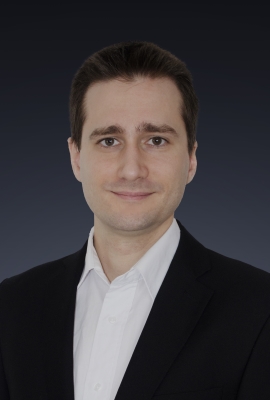
Dr. Dimitri Matioszek
Area of research: Organometallic chemistry, nanomaterials, polymer chemistry
Name of home university / research institute: Université Paul Sabatier Toulouse III – Laboratoire Hétérochimie Fondamentale et Appliquée
Research period at KIT: March 2014 – February 2016
My research field: My research field here is centered on the coordination chemistry of highly reactive species of gallium (Ga) and phosphorous (P). Our main aim is to form heterocycles PGaPGa which may be achieved by a wise choice of the substituents on the atoms. Our second aim is the study of their reactivity toward transition metals. Indeed, the reactive center of the PGaPGa cycle is supposed to coordinate to the latter. Theoretical calculations will support the project in order to optimize the stability of the derivatives. Such new reactivity is of particular interest especially in the catalysis field.
How my research field is going to affect the world of science: We are looking for new behaviors of highly reactive derivatives. These new behaviors may introduce additional tools for catalysis.
My biggest success in research today is being able to switch from organometallic chemistry to nanomaterials and polymer chemistry. These areas are complementary and allowed me to obtain original results. I've been able to design new precursors of germanium that abled us to get nanomaterials in really smooth conditions.
I have chosen the Karlsruhe Institute of Technology because of the good reputations of the university and the research groups in inorganic chemistry. I have chosen this research group because of its topics and also for the nice working atmosphere in it.
Guest of: Pr. Dr. Frank Breher
Department: Institut für Anorganische Chemie
You appreciate in your guest / your guest favorably impresses you by his dynamism, curiosity and his communication skills.
You, your team and the KIT benefit from your guest’s a different point of view provided by his multi-disciplinary background (nanoparticles, polymers, …)
I like about the technology region Karlsruhe its green background and its multi-cultural atmosphere.
With the help of my host at the KIT I would like to gather more capabilities in the molecular chemistry field and also start getting contacts for my future career which will help me to start collaborations
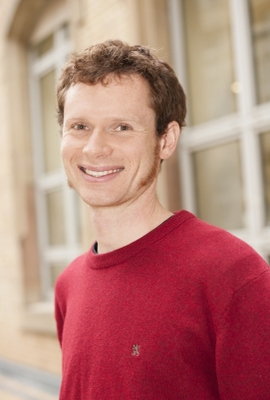 Dr. Florian Pantillon
Dr. Florian Pantillon
Area of research: Atmospheric dynamics
Name of home university / Research Institute: University of Toulouse & CNRS, Toulouse, France
Research period at KIT: November 2013 – October 2015
My research field: My work is focused on the numerical modeling of storms: subtropical storms during my PhD, dust storms currently and possibly winter storms in the future.
How my research field is going to affect the world of science: We improve the understanding and the forecast of severe weather, which is important both for the science and for the society.
My biggest success in research today is: still work in progress!
I have chosen the Karlsruhe Institute of Technology because of…I came to KIT to join an institute that conducts world-leading research in atmospheric dynamics.
I like about the technology region Karlsruhe…I enjoy the combination of various facilities for research with the proximity of nature for outdoor sports.
With the help of my host at the KIT I would like to do…I am currently developing a new, simple model of dust storms that may solve a long-lasting problem in weather forecasts and climate projections.
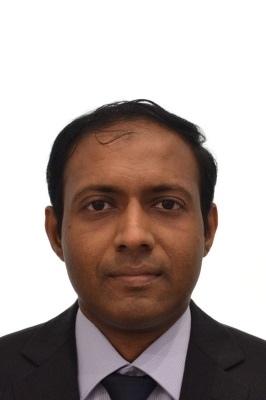 Prabhu Thirupathi
Prabhu Thirupathi
Area of research: Stem cell and Cancer biology
Name of home university / Research Institute: Institute of Toxicology and Genetics, KIT
Research period at KIT: August 2010 to December 2014
My research field: I researched on the molecules that were involved in the malignancy of leukemia. I obtained clues towards the incurable form of leukemia and proposed a strategy to effective cure it.
How my research field is going to affect the world of science: My research field is common to the malignant form of all cancers. The strategy I proposed could be used in all cancers when crucial molecules that are involved are identified.
My biggest success in research today is: Stem cell biology is difficult to work upon as stem cells are very few in number and finding a probable solution to leukemia with existing infrastructure is challenging. I could perform it comparatively well and could take up any task in research with this experience.
I have chosen the Karlsruhe Institute of Technology because of…my technology background with an emphasis on basic biology.
I like about the technology region Karlsruhe…with their exclusive biotech clusters in the region around
With the help of my host at the KIT I would like to…join their efforts in propagating the name of KIT at my home country.
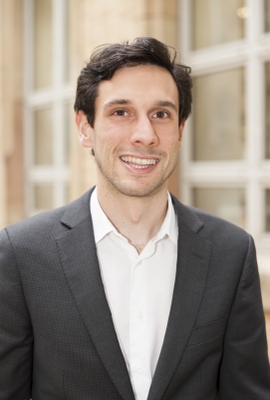 Gonzalo Rodriguez Garcia
Gonzalo Rodriguez Garcia
Area of research: Life Cycle Assessment of Lithium Ion Batteries
Name of home university / Research Institute: Universidade de Santiago de Compostela (Spain)
IT Sligo (Ireland)
Universidade de Vigo (Spain)
Research period at KIT: July 2013-July 2014
My research field: My main research tool is Life Cycle Assessment (LCA). It is an environmental management methodology that evaluates the impact of products along their entire life. It tells us, for example, how many kg of CO2 are emitted each time we drove our car for a kilometer. I use LCA to study lithium ion batteries (LIB). These batteries are commonly found in cell phones and computers, but they are expected to become the standard battery of electric cars. Using LCA, I compare the environmental profile of different LIB. I am particularly interested on how to recycle these batteries. Right now there are not many companies with a specific process for the recycling of LIB. Nevertheless, we are going to need a number of facilities if electric cars become a large share of the mobility market and I want them to be as sustainable as possible. I also assess the toxicity of chemicals used in battery production and recycling like nanomaterials, ionic liquids, or metal extractans.
How my research field is going to affect the world of science: More that the world of science, I want my work to affect the industrial sector. I hope it will help technology developers making the most sustainable battery possible.
My biggest success in research today is: Having influenced the selection of a wastewater treatment technology based of its environmental performance.
I have chosen the Karlsruhe Institute of Technology because of…The possibility of studying a technology that is expected to be very present in our daily life such as electric cars.
I like about the technology region Karlsruhe…Its future-oriented vision. The feeling that here we do not only build our (technological) present, but that we are creating better futures.
With the help of my host at the KIT I would like to do…More sustainable batteries for a more sustainable society.
Gabriel T. Velloso
Area of research: Technology Assessment
Name of home university / Research Institute: New University Of Lisbon
Research period at KIT: 3 years
My research field: Constructive Technology Assessment applied to ethical aspects of Brain-computer Interfaces
How my research field is going to affect the world of science: Through the collection and distribution of knowledge and information, as well as the organization of discussions amongst stakeholders on the ethical aspects of an emerging neurotechnology such as BCI Technology, the consequences of its development as well as its innovation process become clearer for them. It helps stakeholders in achieving a better understanding of how the technology develops as well as gaining a wider vision of the innovation process, which widens their views and perspectives for the technology development. Through the evaluation of such knowledge gained and through the discussions involving stakeholders it is possible to support the development the technology towards a more ethical development for the technology.
My biggest success in research today is: Collecting information from different stakeholders through different means (successful networking through posters and presentations, applying a survey, conducting different interviews) in preparation for future mutual discussions
I have chosen the Karlsruhe Institute of Technology because of… not only are my supervisors working at KIT, but it also hosts the most successful institute for Technology Assessment in the world.
What I like about the technology region Karlsruhe…To be a part of the future, shaping tomorrow through acting today.
With the help of my host at the KIT I would like to… continue my research in Technology Assessment with the aim of moving forward with my career as a researcher/investigator in this area.
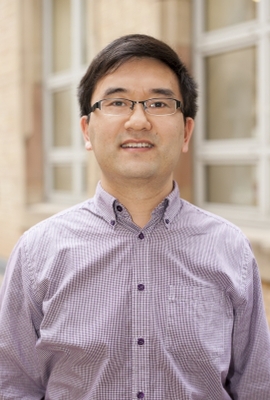 Dr. Liang-Guo Zhang
Dr. Liang-Guo Zhang
Area of research: Computer Science
Name of home university / Research Institute: Institute of Computing Technology, Chinese Academy of Sciences
Research period at KIT: 01/05/2012 - 31/01/2015 at the Institute for Anthropomatics and Robotics (Chair Prof. Waibel)
My research field: Multimodal human-machine interaction (HMI). It will help people to interact with machine (computer/robot) in a natural way through speech, gesture, gaze and so on.
How my research field is going to affect the world of science: It may facilitate the understanding of what is the machine intelligence and how to "create" it so as to provide more natural way for HMI to resemble that of the normal human-human interaction.
My biggest success in research today is: Development of HMI systems through gesture and speech.
I have chosen the Karlsruhe Institute of Technology because of its high reputation in informatics and robotics
I like about the technology region Karlsruhe for its excellent facilities and the multi-cultural symbiosis here.
With the help of my host at the KIT I would like to broaden my research field in speech based HMI and multimodal HMI.

